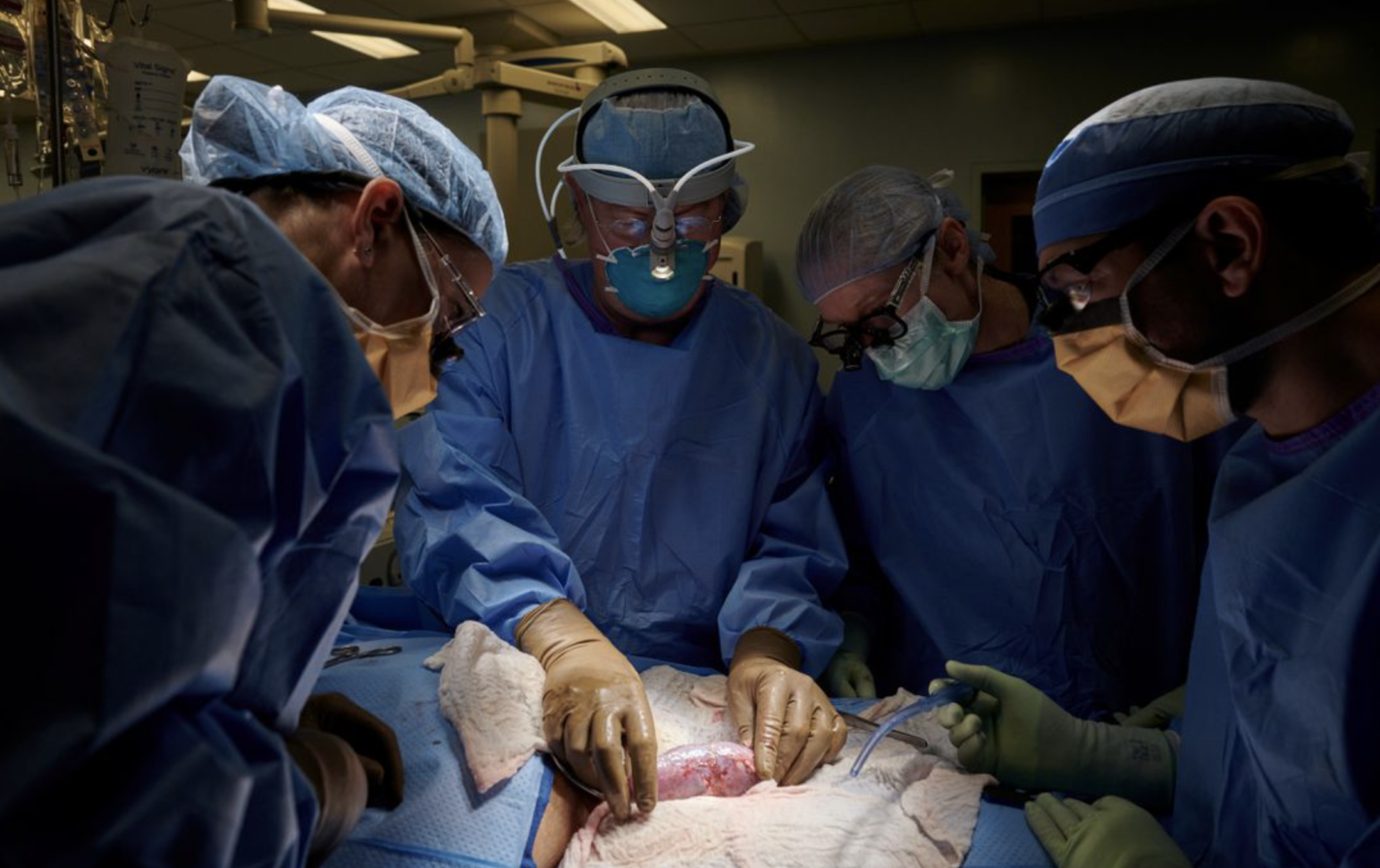For years, researchers have been investigating how to transplant suitable organs into humans by growing them in pigs. As technologies like cloning and genetic engineering are advancing, they are turning this vision closer into reality. Furthermore, for the first time in September, doctors successfully transplanted a pig kidney into the body of a brain-dead patient at NYU Langone Health medical center. Researchers have come to believe that this could be the first stepping-stone to alleviate severely ailing cases in the future with the new supplies of organs.
According to the Reuters, the procedure “involved the use of a pig whose genes had been altered so that its tissues no longer contained a molecule known to trigger almost immediate rejection.” Surgeons then attached the pig’s kidney to the patient with the consent of their family and took the measures of the kidney’s function in the patient’s body for 54 hours. The test results were “pretty normal,” as stated by Dr. Robert Montgomery, the director of the NYU Langone Transplant Institute. According to him, the amount of urine and waste product produced by the transplanted kidney was as expected.
Although the kidney was not implanted in the body, the problems with this type of transplantation, which is called xenotransplant, usually take place “at the interface of the blood supply and the organ, where human blood flows through pig vessels,” according to The New York Times. However, Dr. Montgomery said that because the kidney worked perfectly outside of the body, it could as well function inside of the body.
Furthemore, according to the New York Times, as the supply of pig’s organs become stabilized and will eventually include hearts, lungs, and livers, they “would offer a lifeline to the more than 100,000 Americans currently on transplant waiting lists, including the 90,240 who need a kidney.” In addition, 12 people on this waiting list die each day and it takes approximately three-to-five years for a kidney to be ready to be implanted.
Researchers have tried to figure out ways to avoid the instantaneous rejection of animals’ organs by the human body, but have struggled to yield successful results. “Animal to human transplantation has been something that we have studied for decades now, and it’s really interesting to see this group take that step forward,” said Dr. Maryam Khosravi, a kidney and intensive care doctor that is active in the UK. Dr. Montgomery’s team speculated that if they removed the pig gene for a carbohydrate that triggers rejection—a sugar molecule, or glycan, called alpha-gal—then they would decipher the problem.
“The genetically altered pig, dubbed GalSafe, was developed by United Therapeutics Corp’s (UTHR.O) Revivicor unit,” Reuters noted. “It was approved by the U.S. Food and Drug Administration in December 2020, for use as food for people with a meat allergy and as a potential source of human therapeutics.” However, other researchers are still considering whether GalSafe pigs could be the sources of organs for human patients.
In an effort to prevent the immune reactions to the kidney, Dr. Montgomery and his team also transplanted the pig’s thymus, a gland that is involved in the immune system. After the kidney was added to the blood vessels in the upper leg, the surgeons covered it with a shield in order to study it and take tissue samples over the course of 54 hours. “There didn’t seem to be any kind of incompatibility between the pig kidney and the human that would make it not work,” Dr. Montgomery said. “There wasn’t immediate rejection of the kidney.”
On a note about ethics, Dr. Khosravi believed that just because this transplantation’s result exceeded our expectations, it does not mean that we should continue doing it in the future; “Just because we can doesn’t mean we should. I think the community at large needs to answer these questions.”
Although this transplantation has rewarded many possibilities in the medical field, it raises questions about animal welfare and humans’ utilization. “Pigs aren’t spare parts and should never be used as such just because humans are too self-centered to donate their bodies to patients desperate for organ transplants,” the organization People for the Ethical Treatment of Animals (PETA) stated.
Because the kidney was left for only three days, the prospects of this surgery are still being debated about whether or not they are going to be temporary or long-term. However, this transplantation has paved the way to find more treatments for critically ill patients in the future.

Be First to Comment